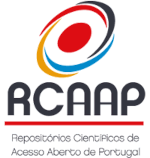Authorship Policy
Athena Health & Research Journal (AHRJ) credits contributors as a list of authors’ names at the beginning of the paper. No list of individual contributions to the paper is published. Any contributors that do not fulfill authorship requirements should be included in the acknowledgments section.
Authorship
We adopt the International Committee of Medical Journal Editors Recommendations for the Conduct, Reporting, Editing, and Publication of Scholarly Work in Medical Journals (ICMJE Recommendations 2019). Therefore, authorship should be based on the following four criteria:
-
Substantial contributions to the conception or design of the work; or the acquisition, analysis, or interpretation of data for the work; AND
-
Drafting the work or revising it critically for important intellectual content; AND
-
Final approval of the version to be published; AND
-
Agreement to be accountable for all aspects of the work in ensuring that questions related to the accuracy or integrity of any part of the work are appropriately investigated and resolved.
AHRJ requires that all those designated as authors should meet all four ICMJE criteria for authorship, and all who meet the four criteria should be identified as author contributors. We recognize only natural persons (an individual human being, as opposed to a private or public organization) as authors. These authorship criteria are intended to reserve the status of authorship for those who deserve credit and can take responsibility for the work. The criteria should not be used to disqualify colleagues from authorship who otherwise meet authorship criteria by denying them the opportunity to meet criterion number 2 or 3. Therefore, all individuals who meet the first criterion should have the opportunity to participate in the review, drafting and final approval of the manuscript.
Contributors who have contributed materially to the paper but whose contributions do not justify authorship should be included in the acknowledgments section.
In addition to being accountable for the parts of the work they have done, an author should be able to identify which co-authors are responsible for specific other parts of the work. In addition, authors should have confidence in the integrity of the contributions of their co-authors.
Corresponding author
The corresponding author, takes primary responsibility for all necessary actions after acceptance of the manuscript and communicating with the journal and with readers after publication.
AI authors
As stated in the AHRJ AI policy, AI technologies will not be accepted as an author(s) of any content submitted for publication. AHRJonly recognizes humans as being capable of authorship since they must be accountable for the work.
Deceased authors
It can be a challenge when an individual has died during the course of the work, to judge whether they should be an author. For example, a challenge can be that they cannot approve the final version, or complete other duties which are associated with authorship. We support a pragmatic approach which seeks to honor individuals who would have been likely to be authors, were it not for their death. We also encourage credit to be given to those who have contributed to work (but whose contribution does not amount to authorship). Authorship is typically decided by the authors. However, AHRJ may need to balance the interests of all involved. For example, the deceased author’s rights (copyright and moral rights) form part of their estate and means that AHRJ asks that individuals contact the next of kin in circumstances where an author has died prior to publication of the work. We do not support gift or ghost authorship of deceased individuals; the individual must have directly contributed to the work.
Incapacity
This policy does not cover circumstances in which an author is temporarily or permanently lacking capacity. These circumstances will be considered on a case by case basis.
Acknowledgments
An acknowledgments statement may be included at the end of the paper, detailing those who helped in carrying out the research but who have not been recognized as authors, as well as for personal expressions of gratitude.








